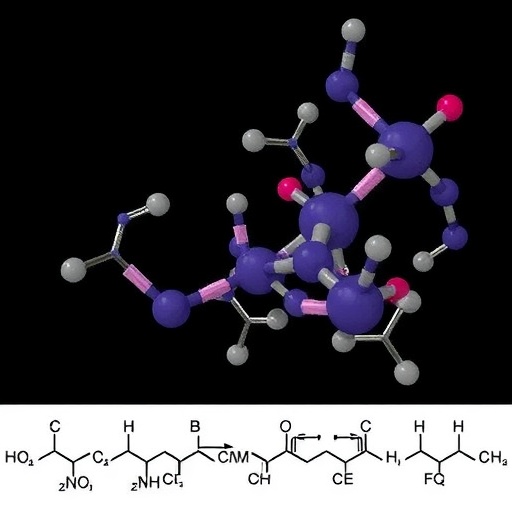The relentless pursuit of finding effective inhibitors for alpha-glucosidase has led researchers to explore various compounds with potential therapeutic properties. The research conducted by Naseer and colleagues presents promising results in their quest to synthesize, evaluate, and understand the mechanism of specific thiosemicarbazones derived from 4-chlorophenyl-sulfonyl indole. This study highlights the important intersection of chemistry, biology, and computational science in the development of new pharmaceutical agents.
Alpha-glucosidase plays a pivotal role in the digestive process by breaking down carbohydrates into glucose. This is critical in managing blood sugar levels, especially in individuals with type 2 diabetes. Inhibiting this enzyme can significantly lower postprandial blood glucose levels, making alpha-glucosidase inhibitors a focal point for diabetes management. The scientific community has long been invested in discovering novel compounds that can function as competitive inhibitors for this enzyme, and thiosemicarbazones have emerged as viable candidates.
The synthesis of thiosemicarbazones involves a straightforward reaction between thiosemicarbazide and a carbonyl compound. This process might look simple, but the intricacies involved in choosing the right substituents are crucial for enhancing biological activity. The researchers in this study meticulously designed new thiosemicarbazones with unique modifications, focusing on the incorporation of 4-chlorophenyl and sulfonyl groups. These modifications were hypothesized to improve the binding affinity to the active site of alpha-glucosidase.
To evaluate the potential of these synthesized compounds, the team employed both in vitro and in silico methods. In vitro studies enabled the researchers to assess the inhibitory capacity of the newly synthesized thiosemicarbazones against alpha-glucosidase in a controlled laboratory environment. The results demonstrated a significant reduction in enzymatic activity, indicating that these compounds are effective inhibitors.
On the other hand, the in silico studies provided a computational framework to predict and analyze the interactions between alpha-glucosidase and the synthesized thiosemicarbazones at a molecular level. Utilizing advanced docking techniques, the researchers were able to visualize how these compounds bind to the enzyme’s active site. Such insights are invaluable, as they guide further modifications of the compounds to enhance their efficacy and specificity.
Beyond just the biochemical interactions, this study also gave attention to the pharmacokinetic properties of the thiosemicarbazones. Understanding how these compounds are absorbed, distributed, metabolized, and excreted is crucial in drug development. The research team collaborated with computational chemists to predict these properties, which not only helps in assessing the safety of the compounds but also indicates their potential effectiveness in clinical settings.
The implications of these findings are far-reaching. With the global rise in diabetes cases according to the International Diabetes Federation, the demand for novel therapeutic options is ever-increasing. The development of thiosemicarbazones as alpha-glucosidase inhibitors not only provides a new avenue for treatment but also emphasizes the significance of interdisciplinary research. By combining synthetic chemistry with biological and computational studies, the research not only opens doors to new therapeutic agents but also sets a precedent for future investigations in drug discovery.
In light of the growing obesity epidemic and its correlation with type 2 diabetes, the relevance of this research cannot be overstated. As individuals worldwide continue to seek effective management strategies for maintaining healthy blood sugar levels, the discoveries made in this study can contribute to a more sustainable and effective approach to diabetes care. It is important to continue this momentum by investigating similar compounds and understanding the complex nature of drug activity against alpha-glucosidase and other relevant targets in metabolic pathways.
Furthermore, public health initiatives aimed at preventive measures against diabetes need to align with breakthroughs in pharmacological treatments. Education about dietary management and lifestyle modifications, paired with the introduction of effective pharmaceutical interventions like the thiosemicarbazones discussed in this study, represents a holistic approach to diabetes care. Critical academic discourse around this research will enhance awareness and may influence future policies on diabetes management.
The methodological rigor of this study serves as a model for researchers looking to develop additional enzyme inhibitors in the battle against various diseases. This interdisciplinary approach not only enriches the scientific community’s resources but also provides tangible benefits to public health. As we step into an era of precision medicine where personalized approaches to disease management are becoming the norm, the synthesis of compounds like 4-chlorophenyl-sulfonyl indole-based thiosemicarbazones will continue to be at the forefront of discussion and research.
Ultimately, the findings of Naseer and colleagues broaden the understanding of alpha-glucosidase inhibition and highlight the importance of innovative synthetic methods in drug design. The potential that thiosemicarbazones hold in the future of diabetes management is only just beginning to be realized, and the journey from laboratory synthesis to clinical application is an exciting prospect. The extensive research landscape that lies ahead must be explored to uncover more compounds that can offer hope for diabetes patients worldwide.
This research stands as a testament to the advances being made in the realm of biotechnology and medicinal chemistry. As the pursuit of knowledge and innovation continues, the impacts of such studies resonate across various spheres, bridging the gap between academia and healthcare. Future collaborations, pooled resources, and collective efforts will drive more discoveries that can effectively combat metabolic disorders like diabetes.
Subject of Research: Synthesis of thiosemicarbazones as alpha-glucosidase inhibitors.
Article Title: Synthesis, in vitro, and in silico studies of 4-chlorophenyl-sulfonyl Indole based thiosemicarbazones as competitive α-glucosidase inhibitors.
Article References:
Naseer, I., Ullah, S., Batool, Z. et al. Synthesis, in vitro, and in silico studies of 4-chlorophenyl-sulfonyl Indole based thiosemicarbazones as competitive α-glucosidase inhibitors.
Sci Rep 15, 38832 (2025). https://doi.org/10.1038/s41598-025-24251-w
Image Credits: AI Generated
DOI: https://doi.org/10.1038/s41598-025-24251-w
Keywords: alpha-glucosidase inhibitors, thiosemicarbazones, diabetes management, drug discovery, synthetic chemistry, pharmacology.
Tags: 4-chlorophenyl-sulfonyl indolealpha-glucosidase inhibitorsblood glucose regulationcarbohydrate digestion controlchemistry and biology intersectioncompetitive enzyme inhibitorsdiabetes management compoundsenzyme inhibition mechanismsmedicinal chemistry researchnovel drug discoverypharmaceutical agent developmentthiosemicarbazones synthesis





